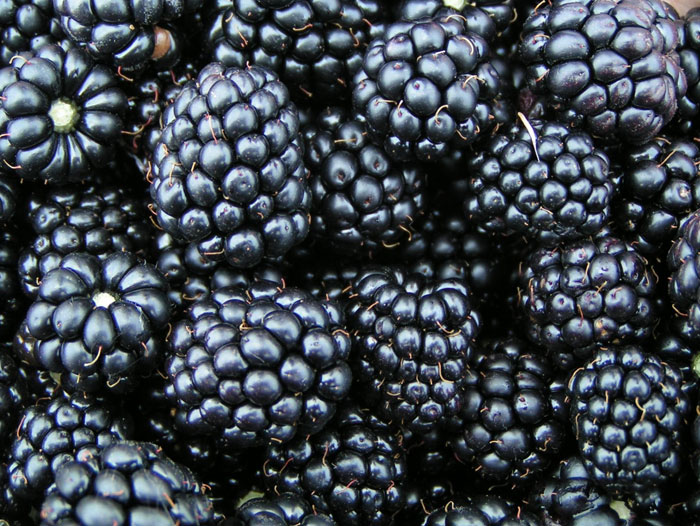FDA Announces Outbreak Investigation of Hepatitis A Potentially Linked to Fresh Conventional Blackberries
November 21, 2019 | 4 min to read

The U.S. Food and Drug Administration (FDA), along with the Centers for Disease Control and Prevention (CDC), and state and local partners, are investigating a multistate outbreak of hepatitis A illnesses in Indiana, Nebraska, and Wisconsin potentially linked to fresh conventional (non-organic) blackberries from the grocery store, Fresh Thyme Farmers Market.
Based on the epidemiological information collected in the investigation thus far, ill patients reported consuming fresh conventional blackberries from Fresh Thyme Farmers Market stores in three states: Indiana, Nebraska, and Wisconsin.
However, traceback information to date shows that these berries came from a distribution center that ships fresh berries to Fresh Thyme Farmers Market stores in 11 states: IA, IL, IN, KY, MI, MO, MN, NE, OH, PA, and WI. As this investigation continues, the FDA will work with our federal and state partners to obtain additional information during the traceback investigation and will update this advisory as more information becomes available.
Recommendation
The FDA is urging consumers to not eat any fresh conventional blackberries if purchased between September 9 and September 30, 2019, from Fresh Thyme Farmers Market stores in the 11 states mentioned above. People who purchased the fresh blackberries and then froze those berries for later consumption should not eat these berries. They should be thrown away.
If consumers purchased fresh conventional blackberries from Fresh Thyme Farmers Market stores in the 11 states listed above between September 9-30, ate those berries in the last two weeks, and have not been vaccinated for the hepatitis A virus (HAV), they should consult with their healthcare professional to determine whether post exposure prophylaxis (PEP) is indicated. PEP is recommended for unvaccinated people who have been exposed to HAV in the last two weeks. Those with evidence of previous hepatitis A vaccination or previous hepatitis A infection do not require PEP.
Contact your healthcare provider if you think you may have become ill from eating these blackberries, or if you believe that you have eaten these berries in the last two weeks.
On this Page
- What is Hepatitis A virus?
- General Food Safety Tips for Retailers
- General Food Safety Tips for Consumers
- Who to Contact
- Additional Information
Case Counts
Total Illnesses: 11
Hospitalizations: 6
Deaths: 0
Last illness onset: November 5, 2019
States with Cases: NE, WI, IN
What is Hepatitis A virus?
Hepatitis A is a contagious virus that can cause liver disease. A hepatitis A virus (HAV) infection can range in severity from a mild illness lasting a few weeks to a severe illness lasting several months. In rare cases, particularly for people with a pre-existing health condition or people with weakened immune systems, hepatitis A infections can progress to liver failure and death.
The majority of hepatitis A infections are from unknown causes or from being in close contact with an infected person; however, some hepatitis A infections are caused by eating or drinking contaminated food or water. Contamination of food can occur at any point during harvesting, processing, and distribution.
Illness usually occurs within 15 to 50 days after eating or drinking contaminated food or water. Symptoms of hepatitis A infection include fatigue, nausea, vomiting, abdominal pain, jaundice, dark urine, and pale stool. In some instances, particularly in children under the age of six, hepatitis A infection may be asymptomatic.
People with hepatitis A infections usually completely recover within one to two months; however, in rare cases hepatitis A may cause prolonged or relapsing infection.
Due to the range in severity of illness, people should consult their health care provider if they suspect that they have developed symptoms that resemble a(n) hepatitis A infection.
All people are susceptible to hepatitis A infection; however, individuals who have had hepatitis A before or who have been vaccinated are immune to hepatitis A infection.
General Food Safety Tips for Retailers
Restaurants and retailers should always practice safe food handling and preparation measures. It is recommended that employees wash hands, utensils, and surfaces with hot, soapy water before and after handling food.
- Regular frequent cleaning and sanitizing of food contact surfaces and utensils used in food preparation may help to minimize the likelihood of cross-contamination.
- Wash and sanitize display cases and refrigerators where potentially contaminated products were stored.
- Wash and sanitize cutting boards, surfaces, and utensils used to prepare, serve, or store potentially contaminated products.
- Wash hands with hot water and soap following the cleaning and sanitation process.
